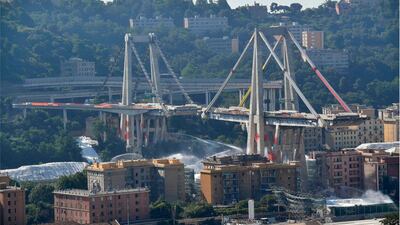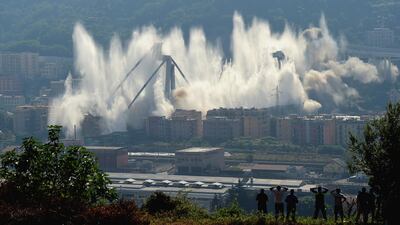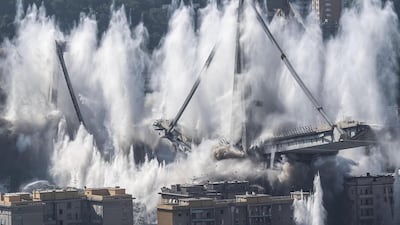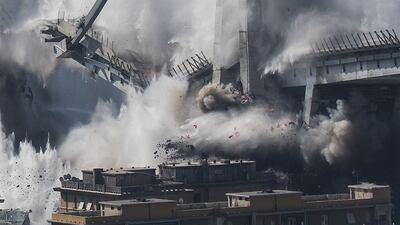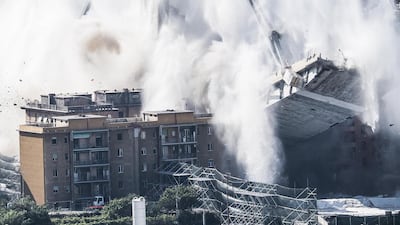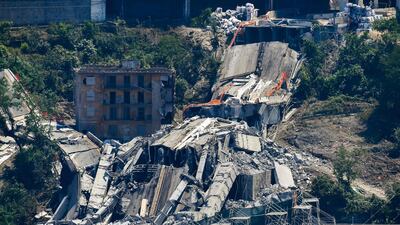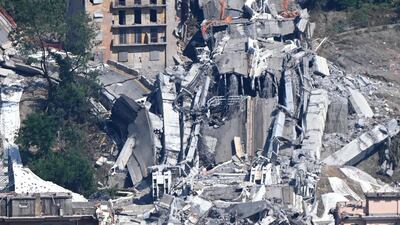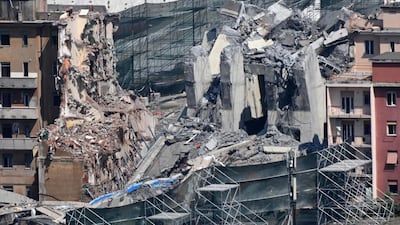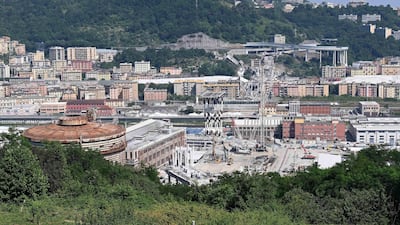Six seconds of controlled explosions wiped out the remains of a collapsed bridge in the northern Italian city of Genoa on Friday, paving the way for a new structure to replace the ageing viaduct that gave way last year, killing 43 people.
Explosives tore down two towers of the Morandi bridge as cannons shot water over the 20,000 cubic metres of steel and concrete to prevent huge clouds of dust engulfing the city.
The bridge collapsed on August 14 in heavy rain, sending dozens of vehicles plunging 50 metres to the ground below.
The collapse has made access to Genoa's busy port more difficult and has also meant a lengthy detour for drivers wanting to head onwards to southern France.
The government of the anti-establishment 5-Star Movement and the right-wing League wants its rapid reconstruction, hoping to signal a departure from the corruption and inefficiency that have often plagued Italian infrastructure projects.
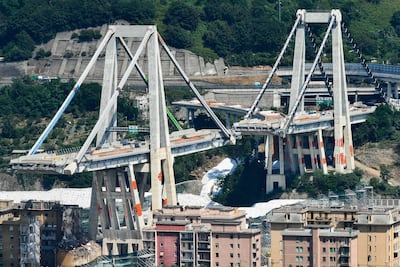
5-Star leader Luigi Di Maio and League chief Matteo Salvini, both deputy prime ministers, attended the demolition, after Infrastructure Minister Danilo Toninelli laid the first stone of the new viaduct earlier this week.
"Today not only the old bridge comes down, but the new one starts coming up," Mr Salvini said.
The reconstruction was assigned to Italian firms Salini Impregilo and Fincantieri. Designed by the renowned Genoa-born architect Renzo Piano, the new viaduct is planned to be inaugurated by the middle of next year.
It remains unclear whether the government will keep its promise to revoke the concession of toll road operator Autostrade per l'Italia, a unit of infrastructure group Atlantia which was in charge of the bridge's maintenance.
Rome has accused the operator of serious failings in its upkeep of the bridge. Autostrade has denied wrongdoing, saying regular, state-supervised inspections had indicated the ageing viaduct was safe.
The revocation procedure started a few days after the bridge collapsed, but the coalition parties are now divided.
Mr Salvini on Friday voiced support for Atlantia as a company "that employs thousands of people, is listed on the stock exchange and has a turnover of dozens of billions of euros".
"I want to be very careful before giving summary judgment," he told daily newspaper La Stampa.
His comments follow criticism of the company on Thursday by Mr Di Maio, who vowed to revoke Atlantia's concession, saying the firm would lose market value and be "cooked" as a result.
Mr Di Maio accuses Atlantia of shoddy maintenance, which the company strongly denies. Top officials of Atlantia and the government's transport safety watchdog are under investigation by prosecutors looking into the cause of the collapse.
Atlantia shares fell about 1.5 percent in early trading, with investors counting on the League to block 5-Star's attempts to revoke the concession, worth 58 per cent of group revenue.
